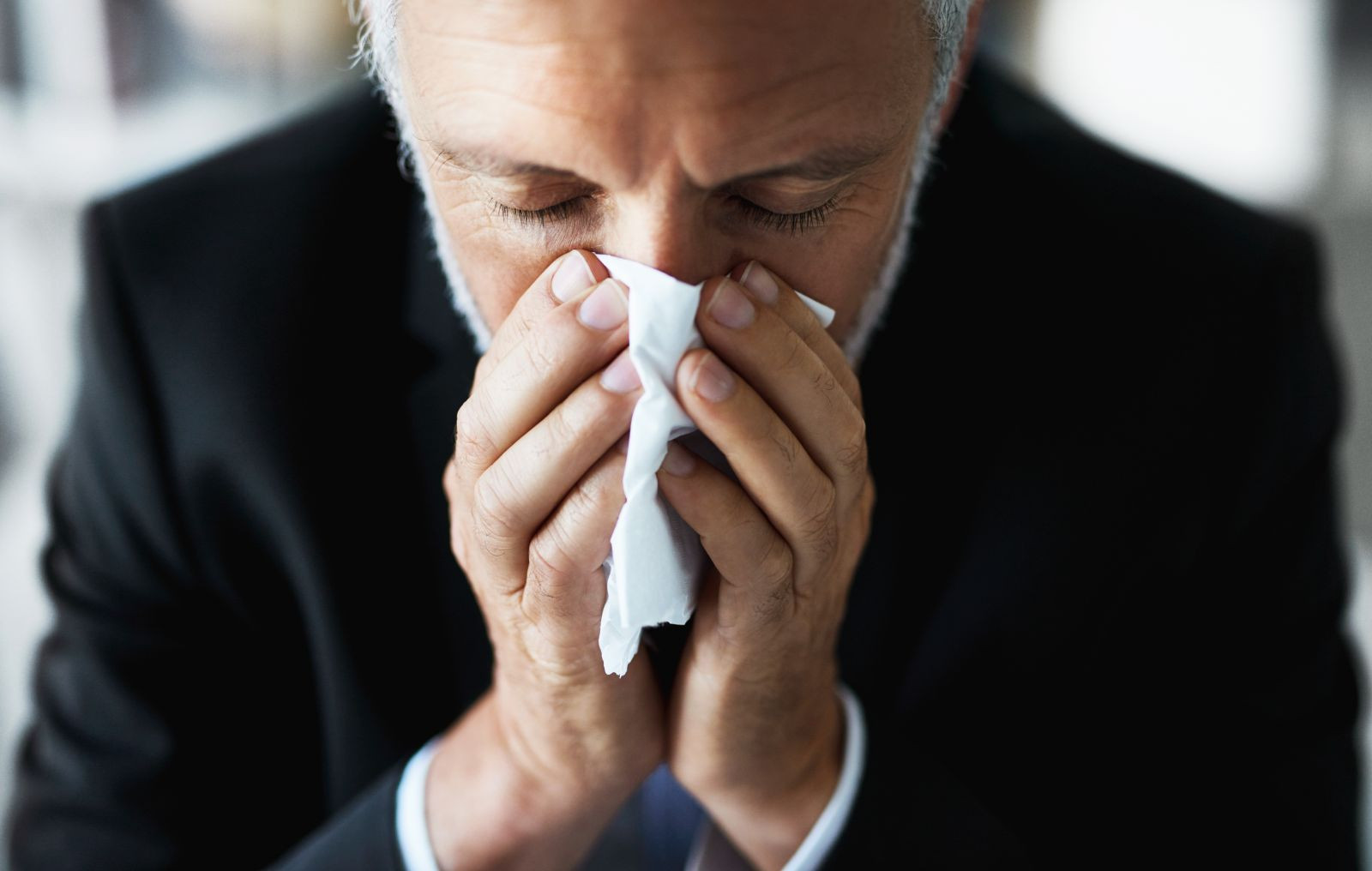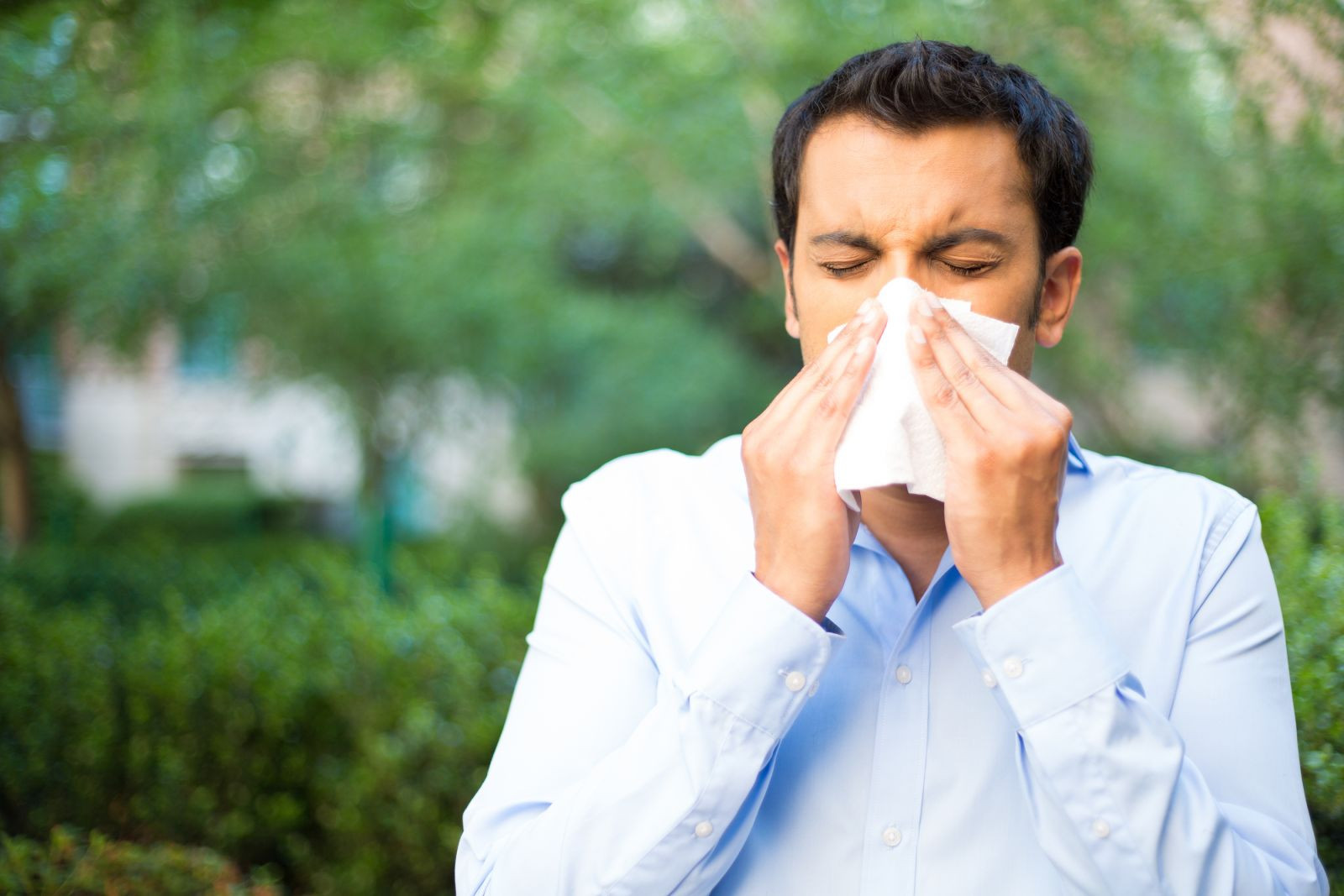
5 timeless habits for better health

What are the symptoms of prostate cancer?

Is your breakfast cereal healthy?

When pain signals an emergency: Symptoms you should never ignore

Does exercise give you energy?

Acupuncture for pain relief: How it works and what to expect

How to avoid jet lag: Tips for staying alert when you travel

Biofeedback therapy: How it works and how it can help relieve pain

Best vitamins and minerals for energy

Should you take probiotics with antibiotics?
Allergies Archive
Articles
Think your baby is allergic to cow’s milk?
Babies who show certain digestive symptoms may be incorrectly diagnosed with cow’s milk allergy and put on special diets, although this allergy is uncommon.
Two common prescription drugs now available over the counter
News briefs
On Feb. 14, 2020, the FDA announced that two popular symptom-relief drugs can now be sold without a doctor's prescription. One is diclofenac sodium topical gel, 1% (Voltaren Arthritis Pain), which is used to temporarily relieve arthritis. The other is olopatadine (Pataday), which comes in eye drop form (in two strengths, for once-a-day or twice-a-day dosing) to relive itchy or red eyes from pollen, ragweed, grass, or animal hair or dander. Even though these medications are now available over the counter, they still have risks and benefits, so talk to your doctor before using any new treatment.
Image: MJ_Prototype/Getty Images
Allergic rhinitis: Your nose knows
Allergic rhinitis, commonly called hay fever, can be a minor seasonal nuisance or a troubling year-round problem. Most people can find relief by taking an antihistamine and by avoiding the allergens that trigger the irritation.
Peanut allergy: A new medicine for children may offer protection
In children with food allergies, peanut allergy is the one most likely to cause a severe reaction. A newly approved medication made from peanut flour treats peanut allergy by giving a gradually increasing dosage over several months.
Food allergy, intolerance, or sensitivity: What’s the difference, and why does it matter?
Many people have experienced unpleasant symptoms related to food, but such a reaction does not necessarily mean that you have a food allergy. The symptoms could indicate a food intolerance, food sensitivity, or possibly celiac disease.
Eosinophilic esophagitis: A new food-related allergic condition on the rise?
Eosinophilic esophagitis is an allergic inflammation of the esophagus that most typically develops as an allergic response to certain foods. The exact cause is unclear, but if left untreated it can lead to permanent scarring or narrowing of the esophagus.
How can I reduce symptoms from my winter allergies?
Ask the doctors
Q. I have terrible allergies every winter. What can I do to make them more tolerable this year?
A. Unlike fall or spring allergies, which are often responses to outdoor allergens, such as pollen or ragweed, most winter allergies are triggered by substances inside your home. Common indoor allergens include dust mites, mold, and pet dander, and they can prompt a host of symptoms, from a runny nose and sneezing to a sore throat and itchy eyes. While these indoor allergens are present year-round, allergies can flare up in the winter because you're cooped up in the house with the windows closed. Your home's furnace may also be circulating these substances through the air once the heat kicks on.
New medication advances treatment for chronic rhinosinusitis with nasal polyps
The FDA has approved a new medication for the treatment of chronic rhinosinusitis with nasal polyps, dupilumab, which is given by injection biweekly.
Ask the doctor: Can allergies cause high blood pressure?
Q. I have allergies. Could they be the reason I have high blood pressure?
A. Although allergies don't usually directly increase blood pressure, they can contribute indirectly to high blood pressure in two very different ways.
Is under-the-tongue allergy therapy safe and effective?
Ask the doctors
Q. I have seasonal allergies and I'm thinking about getting allergy shots to control them. But I hate shots and would prefer the sublingual treatments. Are these treatments considered equally safe and effective?
A. The short answer to your question is yes. Sublingual allergy treatments, which are small doses of allergens administered as tablets or liquid drops under the tongue, are considered safe and effective compared with allergy shots.

5 timeless habits for better health

What are the symptoms of prostate cancer?

Is your breakfast cereal healthy?

When pain signals an emergency: Symptoms you should never ignore

Does exercise give you energy?

Acupuncture for pain relief: How it works and what to expect

How to avoid jet lag: Tips for staying alert when you travel

Biofeedback therapy: How it works and how it can help relieve pain

Best vitamins and minerals for energy

Should you take probiotics with antibiotics?
Free Healthbeat Signup
Get the latest in health news delivered to your inbox!
Sign Up










